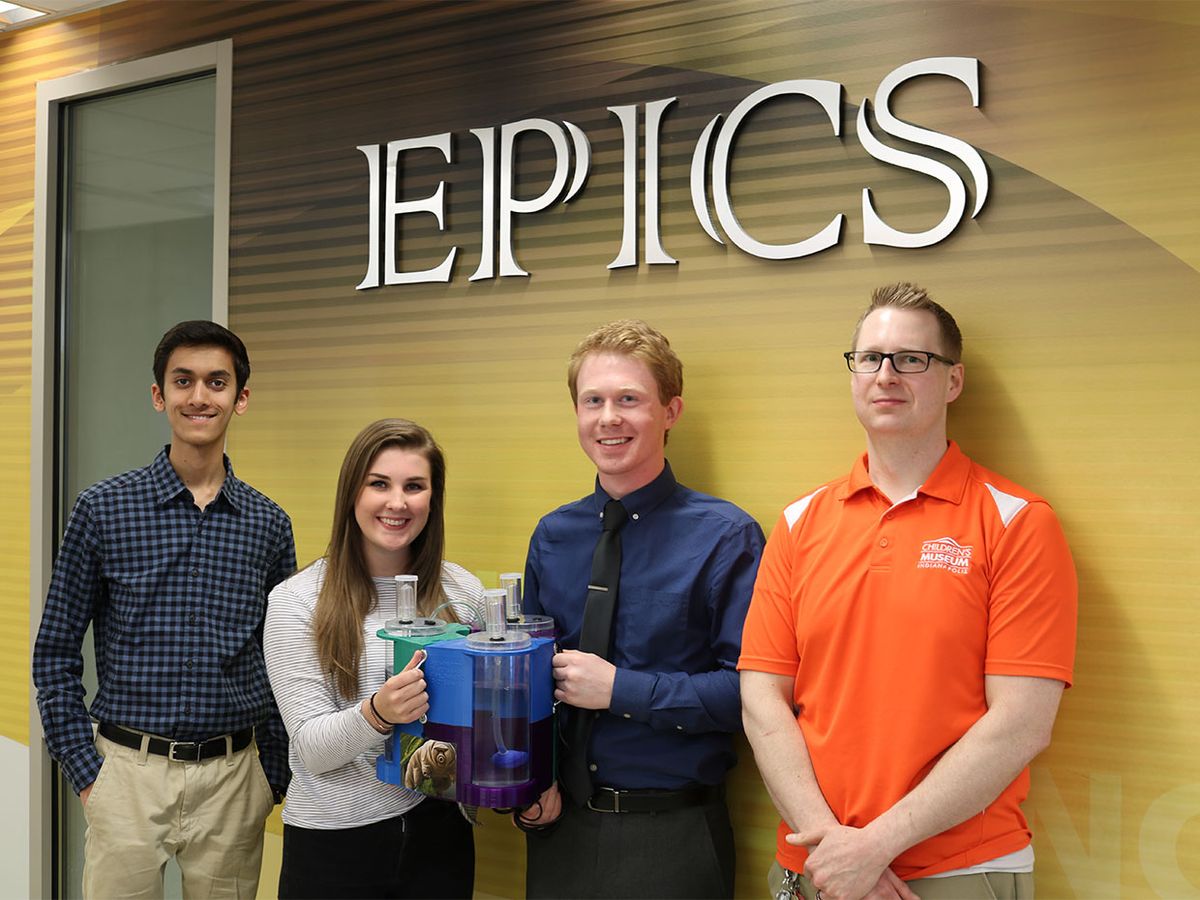THE INSTITUTEThe EPICS in IEEE program is looking for volunteers to work with high school teachers in Baltimore and Chicago to help them improve students’ mathematics and science proficiency. Participating IEEE members can help develop curricula that include hands-on projects.
EPICS in IEEE empowers students to apply technical solutions to aid their communities. The program’s K–12 initiative, which aims to support STEM education at the preuniversity level, is managed by volunteers who are members of the EPICS in IEEE team at Purdue University in West Lafayette, Ind. In 2017 the EPICS Purdue group partnered with Baltimore and Chicago school districts with the goal of not only raising test scores in math and science but also encouraging the students to pursue a STEM career.
The number of students pursuing STEM careers is decreasing around the world. According to IEEE Member Samarth Deo, chair of EPICS in IEEE, several studies have found that across the United States, a majority of high schools fail to meet their state’s threshold for overall student performance in mathematics. In states such as Illinois and Maryland, in 2017 nearly half the high schools did not meet their baselines.
Many students don’t pursue STEM careers because they lack basic knowledge about the fields,” Deo says. “We want this initiative to show students what engineering is all about.”
Twelve schools are participating in the program—six in Baltimore and six in Chicago.
HELPING STUDENTS AND TEACHERS
The math and science curriculums are designed by each school district, with assistance from EPICS Purdue. The curriculum provides an opportunity for IEEE volunteers to take part in introducing these lessons.
EPICS leaders and representatives from the school districts meet monthly to review how students are progressing and to gather feedback from teachers. According to Deo, teachers say students are more motivated because they see the value in what they are learning. The teachers also say that participating in hands-on projects to solve problems is more appealing to students than reading a book about the subject.
The program is still in the pilot phase. Deo says metrics are being gathered on students’ math scores and their grades on the hands-on projects. The group plans to note the number of students who go on to pursue a STEM degree in college.
EPICS in IEEE hopes to expand the program to other parts of the world, including Asia and Europe, Deo says.
For information on how to contribute to the initiative, contact Ray Alcantara, the EPICS in IEEE program manager: r.alcantara@ieee.org or +1 732 981 2867.
This article was written with assistance from EPICS in IEEE, which is funded by donations to the IEEE Foundation’s Realize the Full Potential of IEEE campaign.
Joanna Goodrich is the associate editor of The Institute, covering the work and accomplishments of IEEE members and IEEE and technology-related events. She has a master's degree in health communications from Rutgers University, in New Brunswick, N.J.



